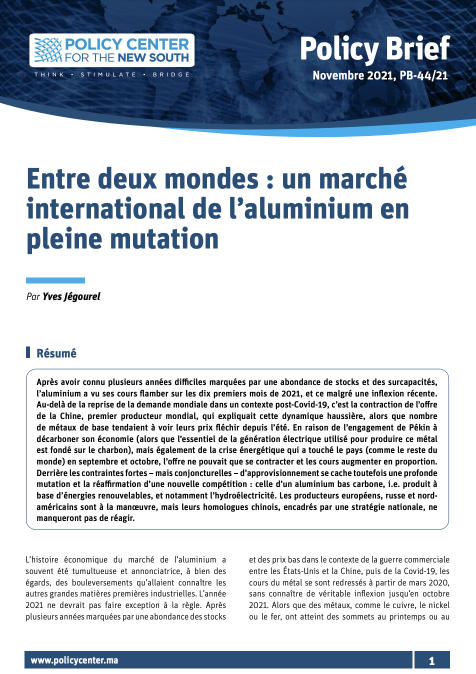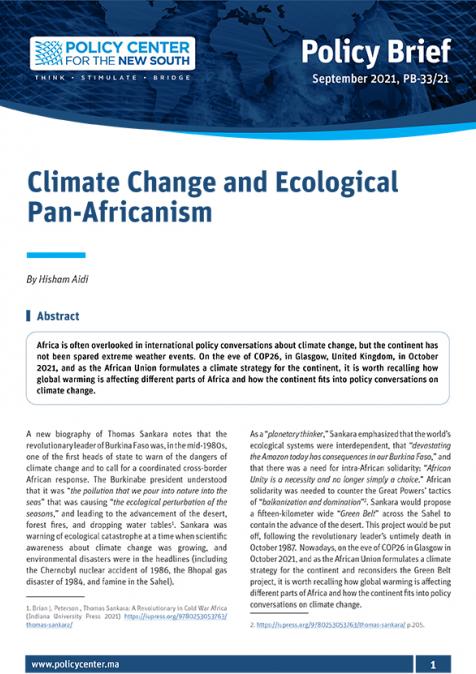Publications /
Policy Brief
Après avoir connu plusieurs années difficiles marquées par une abondance de stocks et des surcapacités, l’aluminium a vu ses cours flamber sur les dix premiers mois de 2021, et ce malgré une inflexion récente. Au-delà de la reprise de la demande mondiale dans un contexte post-Covid-19, c’est la contraction de l’offre de la Chine, premier producteur mondial, qui expliquait cette dynamique haussière, alors que nombre de métaux de base tendaient à voir leurs prix fléchir depuis l’été. En raison de l’engagement de Pékin à décarboner son économie (alors que l’essentiel de la génération électrique utilisé pour produire ce métal est fondé sur le charbon), mais également de la crise énergétique qui a touché le pays (comme le reste du monde) en septembre et octobre, l’offre ne pouvait que se contracter et les cours augmenter en proportion. Derrière les contraintes fortes – mais conjoncturelles – d’approvisionnement se cache toutefois une profonde mutation et la réaffirmation d’une nouvelle compétition : celle d’un aluminium bas carbone, i.e. produit à base d’énergies renouvelables, et notamment l’hydroélectricité. Les producteurs européens, russe et nord-américains sont à la manœuvre, mais leurs homologues chinois, encadrés par une stratégie nationale, ne manqueront pas de réagir.










